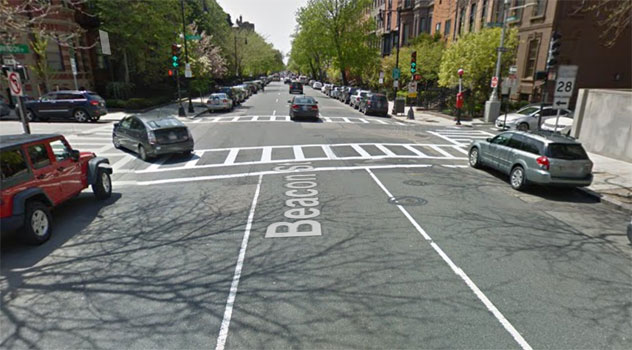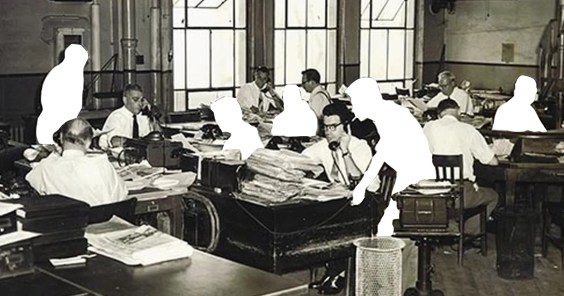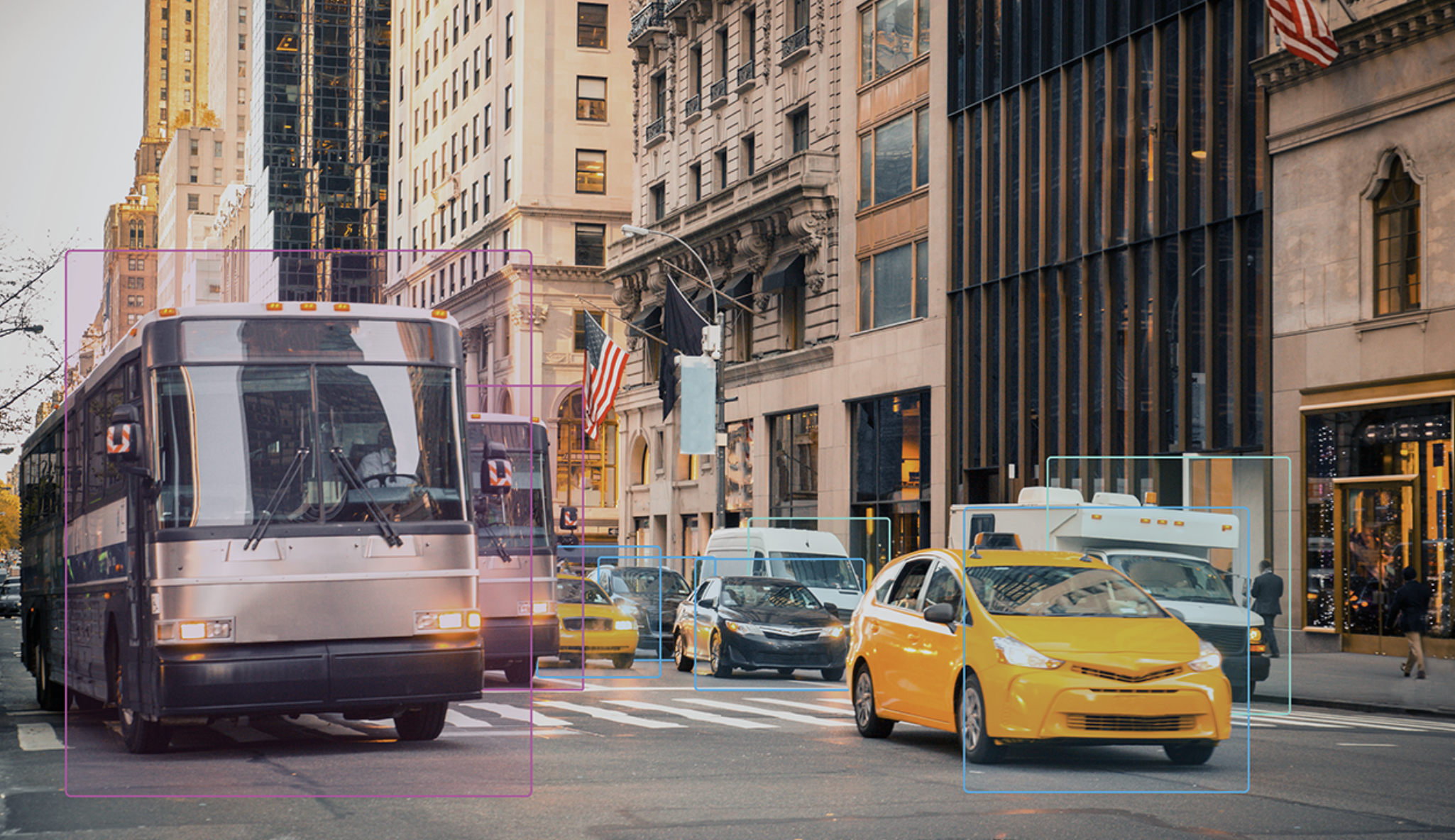Boston's Beacon Street is notorious for speeding and tragedy. Two years ago, a young couple was walking along the street when they were struck by a driver who ran a red light, hit another vehicle, and then flipped. Jessica Campbell, 27, and Jack Lanzillotti, 28, were both killed.
Last year Beacon Street was the site of another high-profile crash. Two men were allegedly drag racing at speeds of up to 60 mph, when one jumped the curb and struck a 28-year-old pedestrian, inflicting non-fatal injuries. Residents of this area of the Back Bay told the Boston Globe that dangerous driving is the norm.
Also in 2016, Mayor Marty Walsh committed to a Vision Zero action plan to eliminate traffic deaths by 2030. Beacon Street is exactly the type of high-risk roadway that Walsh's administration should act decisively to redesign for greater safety, but local advocates say the lack of action to fix Beacon Street is emblematic of the city's timid approach to the problem.
The Vision Zero Coalition, which includes organizations like the LivableStreets Alliance, the Boston Cyclists Union, and Walk Boston, recently released a report calling on Walsh and the City Council to devote more resources to street redesign and staff up agencies like the DOT and Department of Public Works, address Boston's traffic safety problem.
Traffic fatalities in Boston fell last year, but there was a jump in pedestrian deaths, according to Andrew McFarland of the LivableStreets Alliance. The group estimates 15 pedestrians were killed within city limits in 2016, up from nine in 2015. (Official city data hasn't been released yet.)
The city won a major victory last year, getting approval in the statehouse to lower the default speed limit from 30 to 25 mph. That took effect a couple of weeks ago. Walsh's administration has also done good work identifying dangerous streets and intersections.
But the coalition says City Hall isn't taking steps to redesign streets that are commensurate with the scale of the problem. Last summer, for instance, the city installed a protected bike lane on a single block of Beacon. The coalition would like to see these treatments scaled up to include the entire street.
The agencies working on Vision Zero street redesigns in Boston don't have as much to work with as their counterparts in other cities. Boston allocates $3.1 million toward its Vision Zero action plan. That's less than $5 per capita. Meanwhile, New York City has dedicated about $13 per capita and San Francisco about $75, McFarland says.
The coalition wants to see the city's next budget significantly increase funding for Vision Zero projects.
"They really need to up their game in terms of increasing funding and expanding staff to make sure that projects get implemented on the ground," McFarland said.






